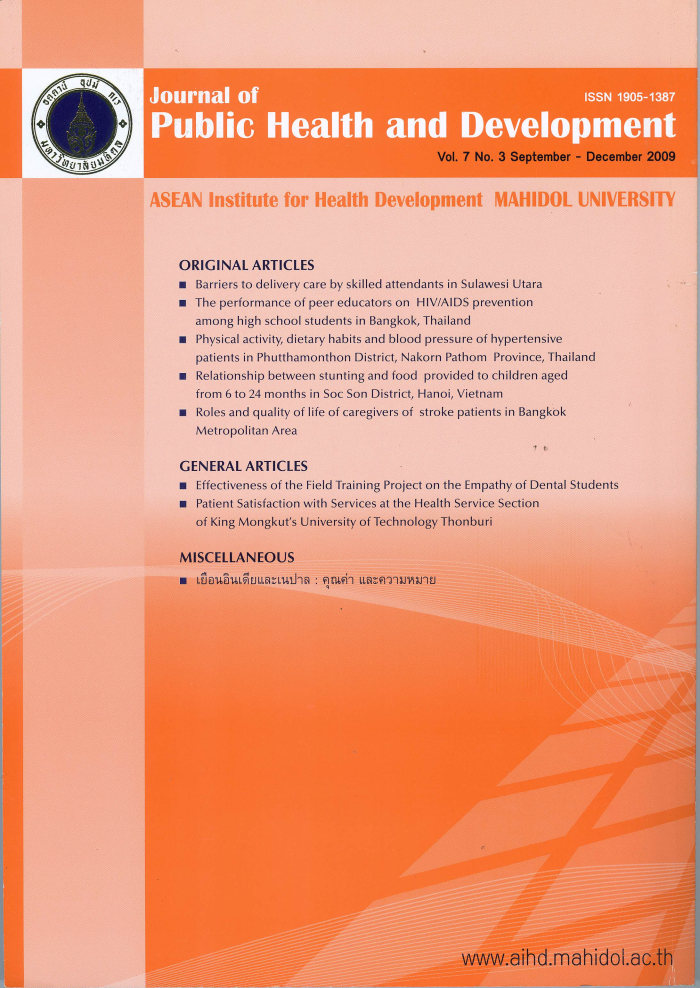The performance of peer educators on HIV/AIDS prevention among high school students in Bangkok, Thailand
Main Article Content
Abstract
A cross-sectional descriptive study was conducted to assess the performance of peer educators on HIV/AIDS prevention among high school students in Bangkok, Thailand. There were 157 students in this study and data were collected from eight schools in Bangkok.
50.96% of the peer educators had high performance for peer education on HIV/AIDS prevention. More than 70% of them performed all kinds of roles for HIV/AIDS prevention. The role which they performed the most was to facilitate students to think about their ideas and attitudes (85.99%).
Significant associations were found between performance of peer educators and duration of working, perception towards peer education, internal motivation, availability of resources including place, time, training courses and number of training courses attended, accessibility of resources including place, materials, budget and training courses, and social support.
The results suggest the need to strategically start selecting and training peer educators from secondary level, to help them form their opinions about peer education, to apply criteria of internal motivation to selection of peer educators, to allocate more time to conduct their activities, to improve accessibility of budget and materials for them, and to strengthen social support for them in order to improve their performance.


